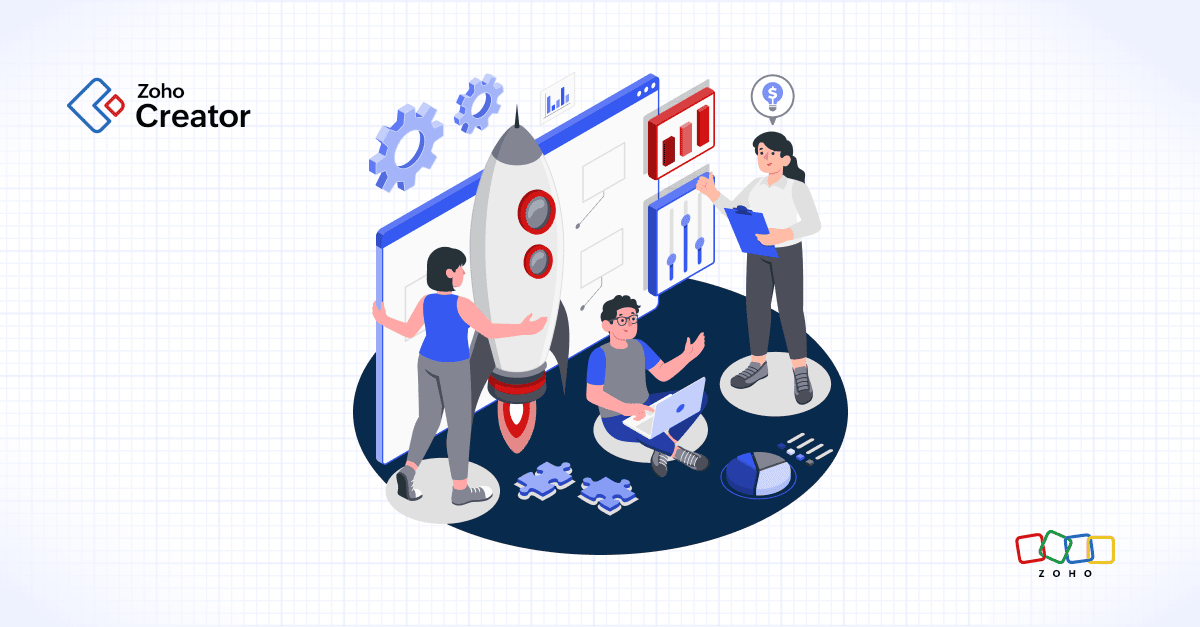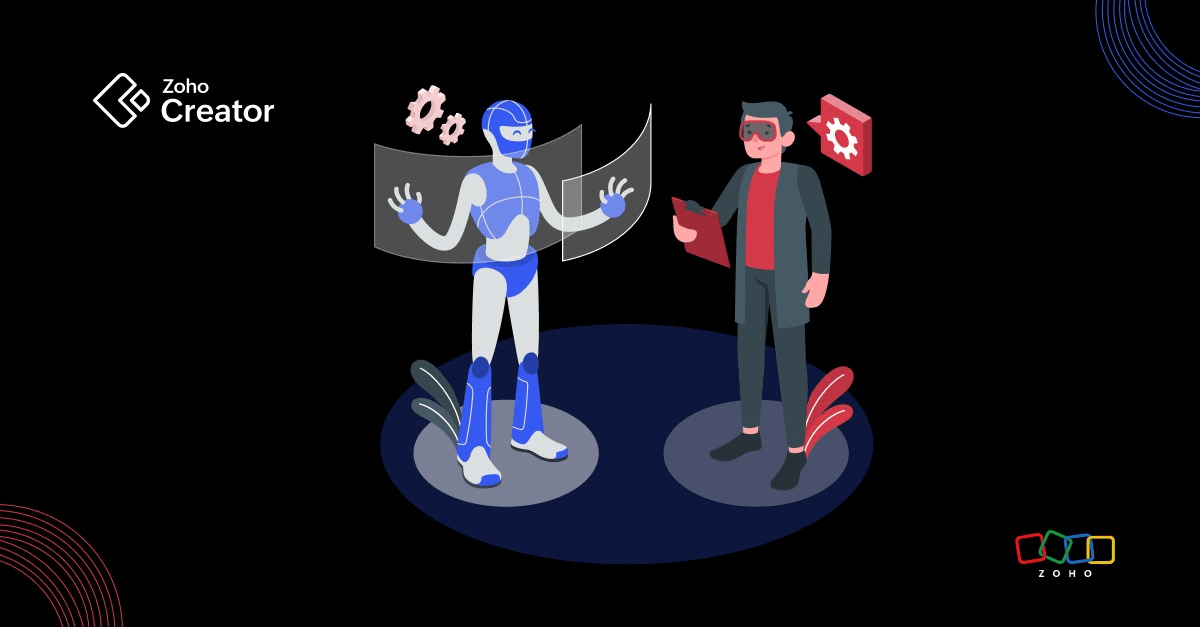- HOME
- Know Your Tech
- Challenges faced by service-based businesses—and how PSA software can help
Challenges faced by service-based businesses—and how PSA software can help
- Last Updated : April 20, 2023
- 1.5K Views
- 6 Min Read
Service companies take up a large chunk of the global marketplace. The growing need for on-demand services is fueled by consumer requirements and companies looking to solve business problems. Professional services is a lucrative business and the evolving industry is attracting a large number of new players. To succeed in such a rapidly growing market, new firms are in constant need of tools to run their operations efficiently and rise above the competition.
Services-based businesses which operate internationally face complex challenges—like revenue leakage and project slippage—when coping with rapidly evolving business requirements. In this article, we will discuss these challenges and how professional services automation (PSA) software addresses them.
What is PSA?
Professional services automation (PSA) software is business software developed specifically to support service-based companies and provide a single source of real-time business data. PSA software offers features that allow professional service firms to manage their day-to-day operations efficiently and deliver customer projects on time and within budget, meeting customer requirements. These features include a combination of work automation, project management, resource utilization, time tracking, finance and billing, team collaboration, and reporting.
Benefits of professional services automation software
Professional services automation software helps firms achieve immediate results by quickly improving, automating, and streamlining business processes that will ultimately help them. Although the processes of different businesses are different, the objectives of professional services automation remain broadly the same:
To centralize essential business processes formerly spread across ad-hoc systems and disparate tools
To optimize end-to-end services throughout the delivery lifecycle for profitability
To provide real-time transparency into engagements and operational performance metrics, and complete visibility for improved decision-making throughout the quote-to-cash cycle
To improve project and resource management, invoicing accuracy, time-tracking, and collaboration with clients
To reduce errors and time spent on manual administrative functions
To proactively resolve capacity and staffing issues that affect timely delivery
To successfully deliver projects and help clients achieve their business objectives
Challenges solved by PSA software
Here is a list of challenges that PSA helps service companies solve:
CHALLENGE 1: Difficulty in expense management and budget leaks
Managing the finances at a business is challenging when companies don't know where their money’s going. It's difficult to track costs and revenue when there's no visibility into how employees spend money in the field. The lack of visibility into company-wide expenses makes it hard to perform optimal budgeting.
How PSA software helps:
PSA tools help companies automate expense management with real-time visibility into incurred expenditure. PSA software improves financial controls with reports and analytics on expenditure and leftover budget. It allows you to track non-billable time and compare your planned vs. actual spending. PSA systems even illustrate where you’re overspending, so you can plug the budget leaks in time. Your business benefits from more accurate revenue-tracking, which results in increased project margins.
CHALLENGE 2: Higher resource utilization rates and lack of resource insights
Services companies have always performed resource planning in an informal ad-hoc manner, with disconnected spreadsheets, email communication, and other unintegrated, entry-level point solutions. The shift to short-term project-based engagements, increasing customer demands, and just‐in‐time delivery trends, makes for increasing complexity in service delivery. The lack of optimal resource scheduling to align resources and availability to client projects can result in gradual margin loss in your business.
How PSA software helps:
PSA lets you get an accurate picture of resource utilization for projects, and track revenue, cost, and profit. These insights can be used to optimize resource utilization and reallocate for higher profit margins. Identifying the projects and clients that contribute the most to your profit margins can help with forecasting resource and staffing requirements for future projects.
CHALLENGE 3: Low visibility into service-delivery lifecycle data and KPIs
Uninformed project decisions are a huge risk for service firms. Business data visibility allows you to perform in-depth data analysis for developing your projects. With real-time transparency, you can understand where each resource is spent, so the business can stay agile and flexible to respond to potential threats or challenges.
How PSA software helps:
By centralizing service processes, PSA software offers a comprehensive view of the company's resources and business operations. You can plug all your key processes; integrate your accounts, departments, and projects onto one easy-to-use platform; and achieve the visibility needed for improved decision-making throughout the quote-to-cash cycle. Companies can leverage analytics to create dashboards that provide teams with operational performance metrics for educated, strategic, and tactical decision-making.
CHALLENGE 4: Gaps in customer communication and collaboration between teams
Services organizations require collaboration—both between team members and across departments—for successful project delivery. To maintain client engagement and ensure consistent visibility into a project and its status, effective ongoing communication between the various departments, like sales, finance, support, accounting, and service delivery, is vital.
How PSA software helps:
Professional services automation software enables team collaboration and supports open client communication throughout the complete project lifecycle. PSA software has project management features that give multiple teams visibility to ensure they are on the same page with business objectives and deadlines. A PSA solution that integrates with a company's existing tools can significantly improve collaboration. For example, a PSA tool that integrates with legacy ERP applications can align accounting with sales and services teams. PSA helps companies carry out better client collaboration throughout the engagement. Collaborating effectively with clients improves business outcomes by ensuring the project is delivered in alignment with customer expectations.
CHALLENGE 5: Difficulty managing incoming projects and service backlogs
Project managers in the service industry often face difficulties due to backlogs in the pipeline of incoming projects. The lack of visibility into business data from legacy systems and the sales pipeline can lead to growing service backlogs and cost overruns. Poor management the incoming contract pipeline can potentially risk the organization’s profits, lead to missed opportunities and missed SLA targets.
How PSA software helps:
Professional service automation lets organizations plan and execute the sales and service pipeline. PSA systems improve transparency into the sales pipeline with real-time visibility into incoming projects, and backlogs of active and waiting projects. Based on these data points, you can calculate work, and forecast monthly revenue, labor costs, and hours. Accurate forecasting with PSA software, and insights into sales opportunities and services backlogs, help you proactively plan your pipeline projects.
CHALLENGE 6: Repetitive and time-consuming administrative tasks
There are many individual moving parts that work together for efficient service delivery. Making these parts work in coordination for multiple delivery projects, while managing time limitations, is crucial to providing the best services to your customers. There are many time-draining administration processes involved with running a dynamic and professional service delivery business. However, such mundane and repetitive admin tasks can overload service professionals, interrupt a smooth-running delivery operation, and distract teams from their schedules.
How PSA software helps:
PSA software can free team members from manual administrative work that take away from time that could be used for more valuable tasks and client engagement. Among other benefits, PSA systems enable users to automate many redundant tasks, like automatically creating resource requests, onboarding new services projects, and creating/assigning tasks for team members while reducing human error.
What’s next?
To sum it all up, PSA solutions help enterprises prioritize their service delivery goal. Unlike single-point solutions, PSA suites support all mission-critical departments while encouraging interdepartmental collaboration. A PSA suite not only provides a single source of real-time delivery data, but also gives teams access to additional performance metrics that can be invaluable to businesses. Some of the more commonly available PSA metrics— like resource utilization, margin per resource, and time to value—help companies make informed business strategies and budget allocation decisions. Using automation as a key driver, PSA puts service delivery at the heart of your business.
Implementing a PSA solution is not a one-time effort and must be carried out in phases. Ideally, you'd want to go live with the minimum viable configuration and iterate to give you the functionality you need and immediate ROI. The drivers of PSA adoption will need a full range of support for later phases, in areas like integration and data analytics. It's vital that your PSA vendor clearly understands your requirements and provide support, strategic advice and hands-on modifications/configuration.
If you want a proven vendor that can meet the needs of any organization, check out Zoho Creator's offerings for professional service businesses.
 Rashmi Sasi
Rashmi SasiProduct marketer at Zoho Creator, where she researches and creates content about all things low-code. Writer by day, reader by night, into eclectic books and long sentences, sci-fi enthusiast, and novice painter. Dislikes character limits.



